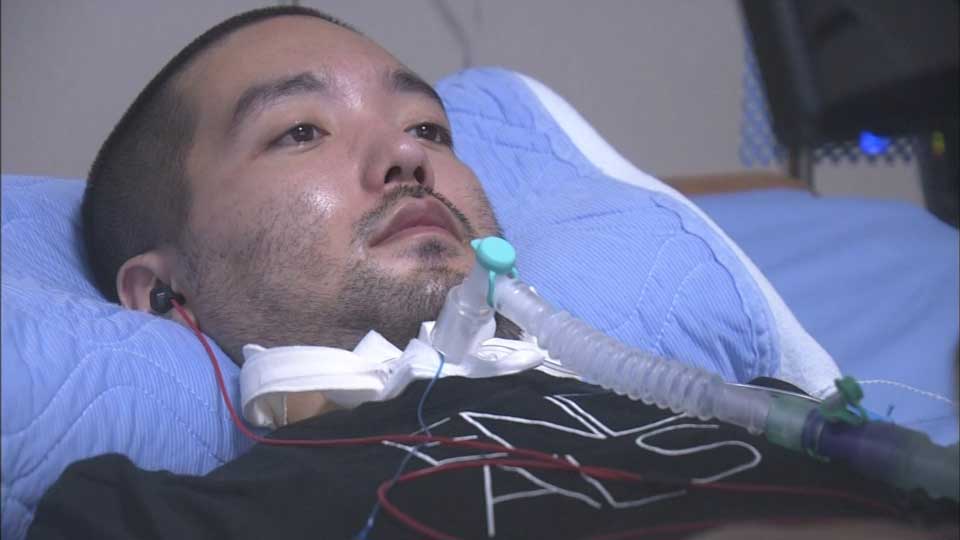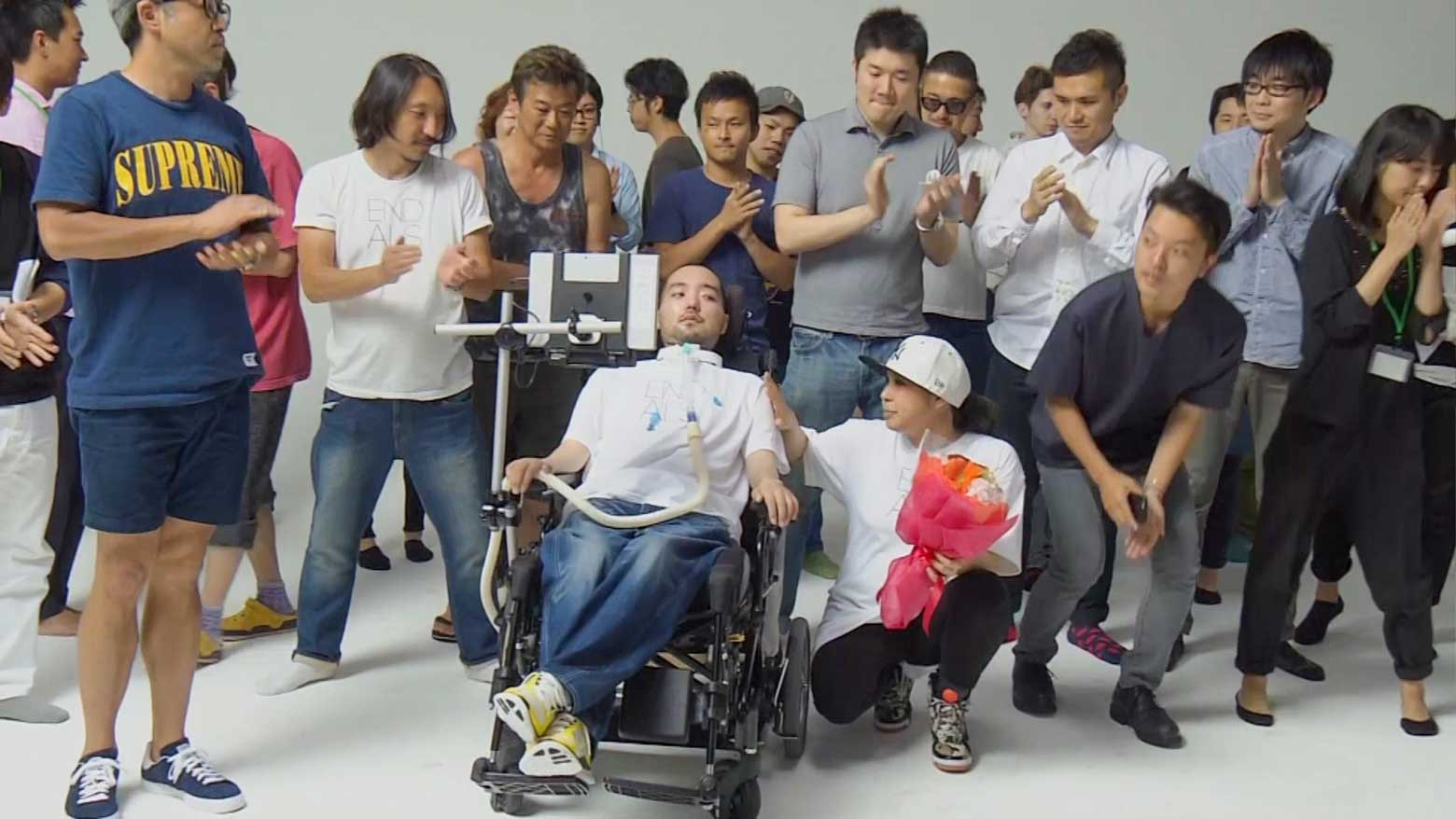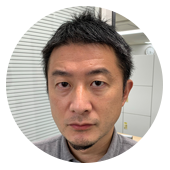"I understand how the woman was feeling. But I wish she had fought the disease alongside me," says 40-year-old ALS patient Fujita Masahiro.
Fujita was diagnosed with the illness at the age of 31. He was working for an advertising agency at that time, but ALS has been gradually paralyzing him. Five years ago, he was able to operate a computer by moving his eyeballs. Now he has lost most of the movement in his eyes.

Fujita relies on Nakano Chiaki, his nurse of nearly ten years, to understand what he is thinking from the slight movements in his pupils. Nakano says she uses what she knows about his character and other factors to imagine what he wants to say, then vocalizes it and checks with him to see if she's right.
Nakano says, "Based on the conversations we have had in the past decade or so, I try to feel what is on Fujita's mind."

The woman at the center of the case described her feelings on Twitter just before she died: "Every day is humiliating and miserable. I can't stand it. Please put me to death."
Fujita felt angry at first when he learned about the incident. He thought the doctors and society at large should have helped her to live. He says he sometimes wanted to die, just like her, but he always chose to live.
Fujita felt the strongest desire to end his life when he imagined what it would be like to be conscious, but with no ability to convey his thoughts.
As he wrote in a book seven years ago: "A totally locked-in state, that's what I fear most. I always want to die, but I also want to live. I've been fighting every second. I have almost no time to relax."
Fujita set up an organization eight years ago and works with friends and acquaintances to find a treatment for ALS and promote public awareness of the disease. After hearing about the apparent mercy killing, he started sharing information about his everyday life on social media to help people better understand ALS patients.
"I want to drink water, talk, move, and drink with my friends through the night."
"I must get well for the sake of people around the world who support me."
But as tough as it is to live with ALS, Fujita says, "I'll never give in."

